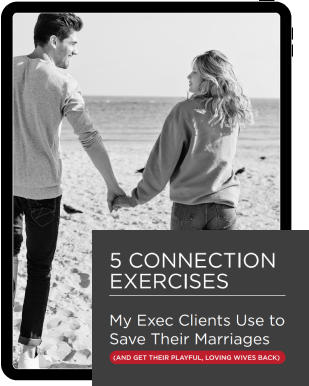“I HATE when she talks about her feelings!”
This is what my client John (not his real name) yelled out in the middle of his marriage coaching session with his wife.
I was encouraging his wife Jane (not her real name) to try expressing her hurt emotions using “I feel” statements versus the more triggering “YOU” statements in effort to breakthrough a conflict they had been carrying on for about a week.
So I asked Jane to express her feelings and emotions around this conflict using “I feel” statements rather than the “you” statements she had been using. Jane eagerly and quickly declared “I feel like you (to John) don’t care about us as much as your work!”… “I feel like you put work in front of us.”… “I feel like you don’t give a shit about how I feel!”…
AHA! There it was. As clear as day.
Of course John “HATES when Jane talks about her “feelings”!… He feels blamed and criticized for her hurt and pain each and every time she expresses how she feels.
Here, Jane is really using “you” statements that are disguised as “I” statements. Because she’s still making statements that are critical and/or blaming of John.
I then asked Jane to dive deeper in to what SHE was feeling and experiencing internally, rather than what she believed HE was feeling or experiencing.
Jane quieted… and took what felt like 30 seconds. I could see her thoughtfully processing her answer. Finally she said,
“When you talk to me in that tone in front of our daughters… I feel like… a failure.”
Oh my gosh. You should have seen John’s face.
His eyes and face immediately softened. He put his hand on his wife’s face, looked in her eyes, kissed her, and reassured her about how much she means to him. All while saying…
“I had NO IDEA you felt like a failure when I did this!”.
That feeling John got from hearing Jane’s “I feel” expression, made him jump off the couch and onto the woman he loves… because in that moment he got to see her truth. He was able to feel her vulnerability and her openness to him. He felt a surge of empathy and compassion for her because he wasn’t preoccupied with defending himself. He was able to hear what she was truly feeling and experiencing mentally and emotionally, outside of any blame or criticism toward him. That allowed him to take action from the compassion he could then feel for her, and help her feel better fast.
And there’s the huge difference. “I feel” statements, when used properly, are powerful expressions that lead to deeper understanding, more compassion, and more empathy for each other. That feels way better. Yes, it takes practice. Yes, it will always be tempting to use “you” statements in the heat of our inevitable battles. But the better we can get at expressing our own internal feelings (sadness, anger, fear, guilt, etc), the more we expand our opportunity to grow individually and as a couple and experience deeper connection and understanding.
I have extensively studied and taught this communication strategy in my private sessions with my clients as well as in my workshops and trainings. I highly respect and study Marshall B. Rosenberg’s work. I recommend his book “Nonviolent Communication” as a resource that will transform the way you communicate with your self and others.
To Your Extraordinary Relationships,
Jennifer Blankl

Certified Relationship & Marriage Coach
Certified Divorce Preventionist
“I HELP busy professionals & parents reignite the connection, excitement, intimacy & fun in their love relationship so they can feel more emotionally fulfilled, understood, appreciated, & respected.”
CLIENT EXPERIENCES & TESTIMONIALS
BOOK YOUR FREE COACHING CALL WITH ME HERE!
Join the “RELATIONSHIP REVOLUTION”!: a Private Facebook Group for WOMEN serving you with powerful and proven insights, strategies and tools to help you have more fun, excitement and fulfillment in your love relationships!
OTHER READINGS:
The Most Effective Way to Track the True Level of Joy and Fulfillment in ANY Relationship
Why Many Leave the Partner They Truly Love
The Energy that’s creating either CONNECTION or CONFLICT in your Love Relationship




One Reply to ““I HATE When She Talks About Her Feelings!””
Comments are closed.